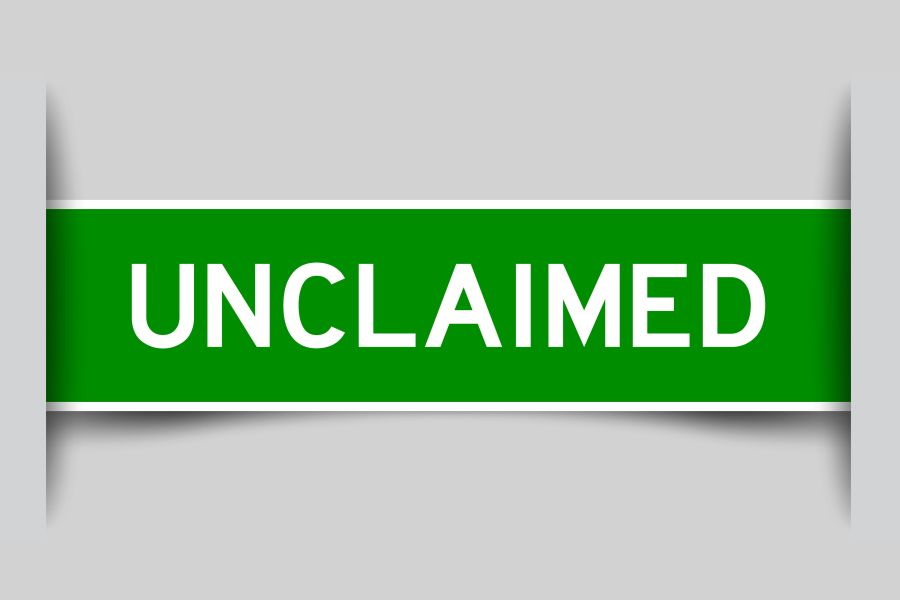Unclaimed Property Voluntary Compliance Program Now Available in California

California AB 2280 established a new Unclaimed Property Voluntary Compliance Program that waives interest for taxpayers who voluntarily come into compliance with unclaimed property reporting requirements. The State Controller’s Office (SCO) has now opened the sign up process for businesses to apply for the program.
Unclaimed Property Reporting Explained
California businesses holding property belonging to others must file with the SCO to report unclaimed financial assets held by the entity for longer than the dormancy period applicable to the property in question (see “Unclaimed Property Explained” below).
Failure to comply without reasonable cause
Businesses that fail to comply with the unclaimed property reporting requirements, and do not have reasonable cause, are subject to interest assessed at the rate of 12% on the value of the unclaimed property. There exists a $10,000 cap on such interest if the business timely pays or delivers the property albeit fails to “substantially comply” with the reporting requirements.
Willful failure to comply
A business that willfully fails to comply is subject to additional fines of $100/day for each day the report is withheld or the duty not performed, up to a $10,000 cap. Businesses that refuse to pay or deliver escheated property to the SCO are subject to fines from $5,000 – $50,000.
Voluntary Compliance Program (VCP) Explained
Application eligibility
A business which is in possession of unreported unclaimed property may apply to the SCO to participate in the Unclaimed Property Voluntary Compliance Program if it:
- Is not currently the subject of an unclaimed property audit, or has not received notification of an upcoming examination;
- Is not the subject of a civil or criminal prosecution involving compliance with the Unclaimed Property Law;
- Does not have unpaid or unresolved interest assessments from within the past five years (businesses can apply for the program after paying the interest assessment); and
- Has not had interest waived under the VCP within the past five years, or are applying to resolve unclaimed property related to an acquisition or merger.
VCP participation and completion steps
The SCO has full discretion as to whether to accept an applicant. If accepted into the program, the business must comply with the following to have the interest assessment waived:
- Register for and attend a 2-hour online training course within three months of enrollment in the Unclaimed Property VCP. The training includes a detailed overview of California’s Unclaimed Property Law, how to report, and the requirements of VCP participation. Trainees must participate in polls and quizzes to demonstrate an understanding of the material presented for the training step to be completed.;
- Review books and records from at least the previous 10 years for unclaimed property (or less if the business has been in operation fewer than 10 years). This step may be started before submitting an application if doing so will enable the business to conduct a full and complete review of their books and records.;
- Send Due Diligence notices to owners whose property you have determined is reportable as unclaimed no less than 30 days prior to submitting the Notice Report;
- Submit a Notice Report by the assigned deadline using the Holder Reporting Portal. The Notice Report can be submitted earlier than the assigned due date as long as all previous steps have been completed; and
- Respond to owner inquiries received from pre-escheat letters sent to owners by SCO after the business submits its VCP Notice Report and before its Remit Report is due.
- Submit a Remit Report using the Holder Reporting Portal and remit property between 7 and 7½ months after submitting the Notice Report. SCO will notify the business of its Remit Report due date on the Holder Remit Reminder Letter (14F) sent after the business’s Notice Report has been accepted.
VCP Application
A business can request to receive a voluntary compliance program application at the State Controller’s Office:
Web: www.sco.ca.gov/upd_vcp.html
E-mail: UPDHolderOutreach@sco.ca.gov
Telephone: (916) 464-6088
As part of the application the business must provide:
- The estimated value of inactive properties and accounts in their records;
- Timeframe under which the business will submit their Notice Report; and
- Staff members who will attend the online training and submit reports.
“Unclaimed Property” Explained
California’s Unclaimed Property Law requires that businesses review their records annually to determine if they are holding any funds, securities, or other properties that have been unclaimed for the required dormancy period. California’s Unclaimed Property Law does not include real estate.
- Wages escheat to the state when they remain unclaimed by the employee for more than one year
- Most other property is escheated when it remains unclaimed by the owner for more than three years
The most common types of financial asset unclaimed property are:
- Any dividend, profit, distribution, interest, or payment on principal owed to a shareholder;
- Bank account and safe deposit box contents
- Stocks, mutual funds, bonds, and dividends;
- Uncashed cashier’s checks and money orders;
- Certificates of deposit
- Matured or terminated insurance policies
- Estates
- Mineral interests and royalty payments
- Trust funds and escrow accounts
- Vendor payments;
- Unredeemed gift certificates, gift cards, or stored value cards;
- Refunds or credit balances;
- Utility account deposits;
- Wages, salaries, commissions, and similar items; and
- Intangible property such as rebates.
In addition, outstanding liabilities arising in the course of conducting business are also subject to unclaimed property reporting. Potential unclaimed property for businesses may consist of the following items appearing on the Balance Sheet (or Income Statement if written off):
- Old outstanding checks for items such as uncashed payroll checks, customer deposits/refunds, and pension distributions
- Liabilities written off to an income account or reversed in the expense account;
- Customer deposit liability accounts;
- Overpayments;
- Credit balances in accounts receivable;
- Indeterminate receipts;
- Unrecorded liabilities for good/services received but never booked as a liability or paid for.
(This is Blog Post #1497)


